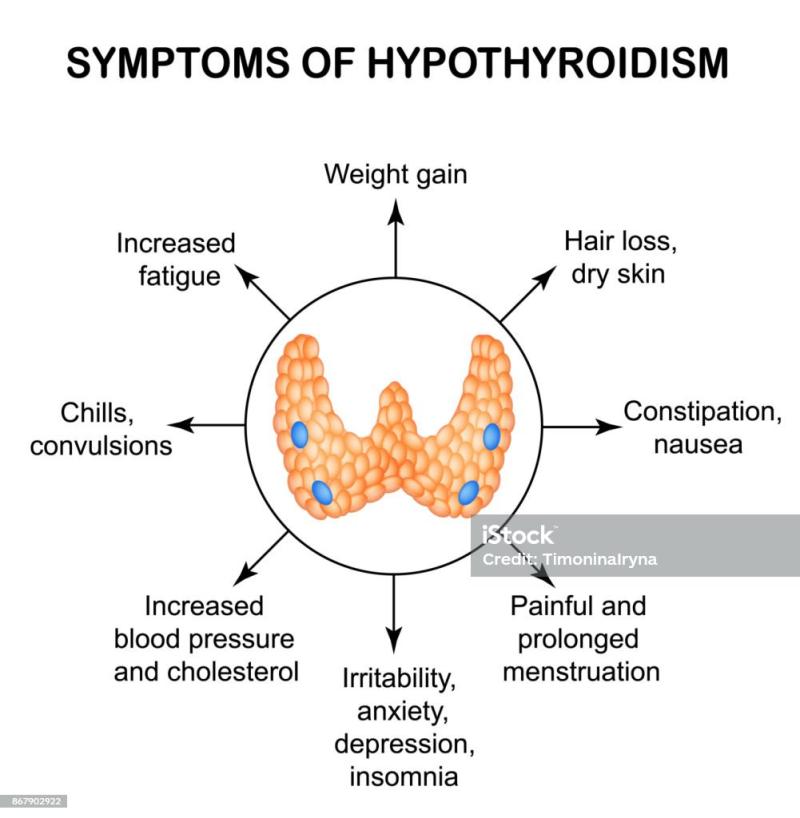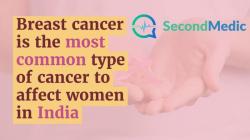What are the symptoms of severe hypothyroidism?
Severe hypothyroidism is a medical condition where the thyroid gland is not producing enough thyroid hormones to meet the body's needs. Thyroid hormones are crucial for regulating various bodily functions, and when their levels are significantly low, it can lead to a wide range of symptoms. Here are some common symptoms of severe hypothyroidism:
Extreme Fatigue: Individuals with severe hypothyroidism often experience extreme and persistent fatigue, even after a full night's sleep.
Cold Sensitivity: Intolerance to cold temperatures is common, and affected individuals may feel excessively cold, even in normal conditions.
Weight Gain: Unexplained weight gain and difficulty losing weight, despite a reduced appetite, can be a symptom of severe hypothyroidism.
Dry Skin and Hair: Dry, pale, and cool skin, as well as brittle, thinning hair, are frequently seen in individuals with severe hypothyroidism.
Constipation: Sluggish digestion and constipation are common gastrointestinal symptoms.
Muscle Weakness and Pain: Muscle weakness, stiffness, and aches can be present.
Joint Pain: Joint pain and stiffness, similar to arthritis, may occur.
Depression: Symptoms can include low mood, depression, and a feeling of apathy.
Cognitive Impairment: Mental fogginess, difficulty concentrating, and memory problems may be present.
Hoarse Voice: A hoarse or raspy voice can be a symptom due to changes in the throat tissues.
Swelling (Edema): Swelling, especially in the face and lower extremities, may occur.
Irregular Menstrual Periods: For women, menstrual irregularities, heavy periods, or amenorrhea (absence of menstruation) may be experienced.
Bradycardia: A slow heart rate (bradycardia) and abnormal heart rhythms can be associated with severe hypothyroidism.
Goiter: In some cases, an enlarged thyroid gland (goiter) can be observed.
Myxedema: Myxedema is a severe form of hypothyroidism that can lead to life-threatening symptoms, including low blood pressure, hypothermia, confusion, and in extreme cases, coma. It requires immediate medical attention.
It's important to note that the symptoms of severe hypothyroidism can vary among individuals, and not everyone will experience all of these symptoms. Additionally, many of these symptoms can be subtle or attributed to other health issues, making it important to consult a healthcare professional for a proper diagnosis.
If you suspect you have severe hypothyroidism or are experiencing some of these symptoms, it's crucial to seek medical attention. Hypothyroidism can be effectively managed with medication, usually in the form of synthetic thyroid hormones, under the guidance of a healthcare provider.
Severe hypothyroidism, also known as myxedema coma, is a rare but life-threatening condition that occurs when hypothyroidism is left untreated for a long period of time. It is characterized by a significant slowing of the body's metabolism, which can lead to a number of serious symptoms, including:
- Low body temperature (hypothermia)
- Slow heart rate (bradycardia)
- Low blood pressure (hypotension)
- Decreased breathing rate (bradypnea)
- Dry, swollen skin
- Hair loss
- Puffy face
- Enlarged tongue
- Hoarse voice
- Confusion or drowsiness
- Loss of consciousness
If you or someone you know is experiencing any of these symptoms, it is important to seek medical attention immediately. Severe hypothyroidism is a medical emergency that requires prompt treatment.
Treatment for severe hypothyroidism typically involves intravenous administration of thyroid hormone replacement therapy. This will help to bring the body's metabolism back to normal levels and alleviate the symptoms of the condition. In some cases, other medications may also be needed to treat the complications of severe hypothyroidism, such as low blood pressure or pneumonia.
With prompt treatment, most people with severe hypothyroidism make a full recovery. However, it is important to continue thyroid hormone replacement therapy for the rest of their lives to prevent the condition from recurring.
Here are some things to look out for if you are concerned that you or someone you know may have severe hypothyroidism:
- Unexplained weight gain
- Fatigue
- Sensitivity to cold
- Dry skin
- Hair loss
- Puffy face
- Enlarged tongue
- Hoarse voice
- Confusion or drowsiness
If you are experiencing any of these symptoms, it is important to talk to your doctor. They can order a blood test to check your thyroid hormone levels. If you are diagnosed with hypothyroidism, they will work with you to develop a treatment plan.
Hypothyroidism is a common condition, but it is important to be aware of the signs and symptoms of severe hypothyroidism. If you or someone you know is experiencing any of these symptoms, it is important to seek medical attention immediately. With prompt treatment, most people with severe hypothyroidism make a full recovery.













